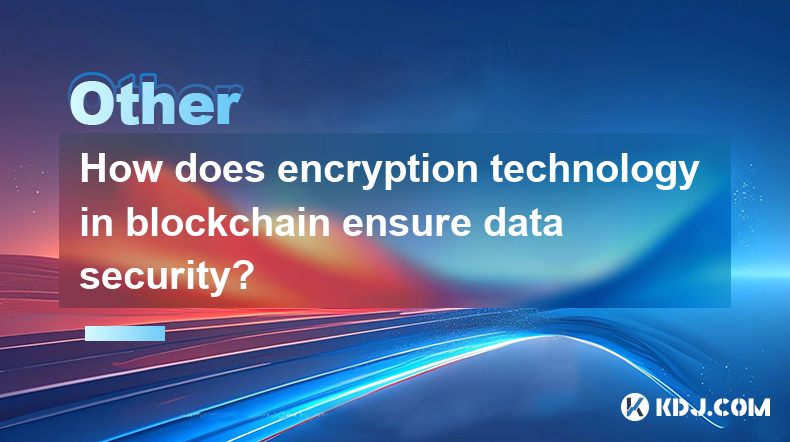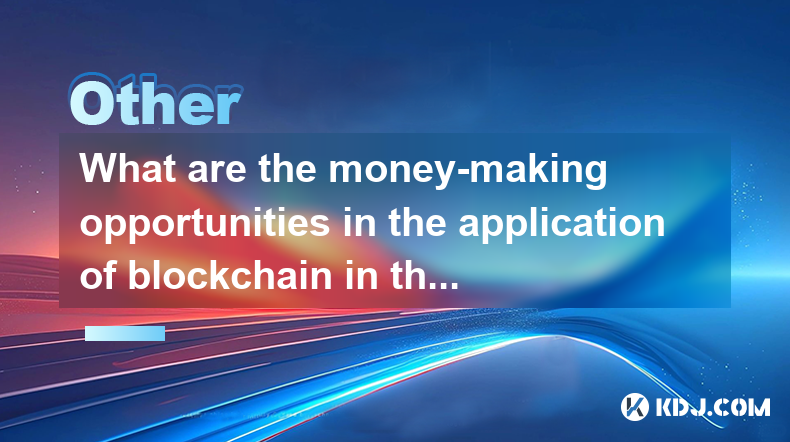-
 Bitcoin
Bitcoin $81,489.5635
-1.67% -
 Ethereum
Ethereum $1,695.4651
-5.18% -
 Tether USDt
Tether USDt $0.9995
-0.01% -
 XRP
XRP $2.0520
-3.51% -
 BNB
BNB $570.9477
-3.69% -
 USDC
USDC $0.9998
-0.01% -
 Solana
Solana $112.8204
-4.54% -
 Dogecoin
Dogecoin $0.1592
-5.32% -
 TRON
TRON $0.2383
0.43% -
 Cardano
Cardano $0.6186
-5.05% -
 UNUS SED LEO
UNUS SED LEO $8.9764
-1.16% -
 Toncoin
Toncoin $3.2746
-0.41% -
 Chainlink
Chainlink $11.9775
-5.49% -
 Stellar
Stellar $0.2502
-0.32% -
 Avalanche
Avalanche $16.9747
-5.28% -
 Shiba Inu
Shiba Inu $0.0...01172
-3.57% -
 Sui
Sui $2.0344
-8.21% -
 Hedera
Hedera $0.1516
-5.77% -
 Polkadot
Polkadot $3.8232
-2.49% -
 MANTRA
MANTRA $6.0922
-3.03% -
 Litecoin
Litecoin $76.7063
-6.65% -
 Bitcoin Cash
Bitcoin Cash $291.2979
-2.40% -
 Dai
Dai $0.9999
-0.02% -
 Ethena USDe
Ethena USDe $0.9986
-0.05% -
 Bitget Token
Bitget Token $4.2790
-3.53% -
 Pi
Pi $0.6120
-0.50% -
 Monero
Monero $203.4248
-5.68% -
 Hyperliquid
Hyperliquid $10.9016
-6.10% -
 Uniswap
Uniswap $5.4430
-6.01% -
 OKB
OKB $52.1906
1.63%
How does encryption technology in blockchain ensure data security?
Blockchain uses asymmetric encryption, hashing, digital signatures, consensus mechanisms, and zero-knowledge proofs to secure data, ensuring transaction integrity and preventing unauthorized access and fraud.
Feb 28, 2025 at 12:24 pm

How Does Encryption Technology in Blockchain Ensure Data Security?
Key Points:
- Asymmetric Encryption: Explores the role of public and private keys in securing transactions and data integrity within the blockchain.
- Hashing Algorithms: Details how cryptographic hashing functions create unique fingerprints of data blocks, ensuring data immutability and tamper-proof nature.
- Digital Signatures: Examines how digital signatures verify the authenticity and non-repudiation of transactions, preventing fraudulent activities.
- Consensus Mechanisms: Discusses how different consensus mechanisms contribute to the overall security of the blockchain by ensuring data validity and preventing malicious attacks.
- Zero-Knowledge Proofs: Explains how zero-knowledge proofs allow for verification of information without revealing the underlying data, enhancing privacy.
How Does Encryption Technology in Blockchain Ensure Data Security?
Blockchain technology relies heavily on robust encryption techniques to guarantee the security and integrity of its data. Let's delve into the various methods employed:
- Asymmetric Encryption (Public-Key Cryptography): At the heart of blockchain security lies asymmetric encryption. This cryptographic system uses two distinct keys: a public key and a private key. The public key, as its name suggests, is publicly available and can be used to encrypt data. Only the corresponding private key, which is kept secret by the owner, can decrypt the data. This fundamental principle underpins the secure transfer of cryptocurrencies and other sensitive information on the blockchain.
Imagine Alice wants to send Bob some Bitcoin. Alice uses Bob's publicly available address (derived from his public key) to encrypt the transaction details. This encrypted transaction is then broadcast to the network. Only Bob, possessing the corresponding private key, can decrypt the transaction and claim his Bitcoin. This system ensures that only the intended recipient can access the information, preventing unauthorized access and manipulation. The security of this system relies on the computational infeasibility of deriving the private key from the public key. Sophisticated algorithms like RSA and ECC are used to create these key pairs, making it practically impossible to crack even with significant computing power. The strength of the encryption is directly tied to the length of the keys used – longer keys provide exponentially stronger security. Furthermore, best practices emphasize the secure storage and management of private keys, as their compromise would lead to a loss of control over associated assets. The security of the entire system is also dependent on the secure generation of these key pairs; vulnerabilities in the key generation process can lead to weaknesses in the overall security. Finally, the implementation of these algorithms in software and hardware also plays a critical role; any flaws in implementation can create vulnerabilities exploitable by malicious actors. The constant evolution of cryptographic algorithms and best practices is crucial to maintaining the security of blockchain systems against emerging threats.
- Hashing Algorithms: Hashing is a one-way cryptographic function that takes an input (data) of any size and produces a fixed-size output called a hash. This hash acts as a unique "fingerprint" of the input data. Even a tiny change in the input data results in a completely different hash. In blockchain, hashing is crucial for ensuring data integrity and immutability. Each block in a blockchain contains a hash of the previous block, creating a chain of blocks linked together cryptographically. This linkage makes it computationally infeasible to alter any data within a block without changing its hash, which would then invalidate the entire chain.
The most commonly used hashing algorithms in blockchain are SHA-256 and SHA-3. These algorithms are designed to be collision-resistant, meaning it's extremely difficult to find two different inputs that produce the same hash. This collision resistance is paramount to the security of the blockchain, as any successful collision would allow malicious actors to tamper with the data without detection. The security of these hashing algorithms relies on the computational complexity of the underlying mathematical functions. Advances in computing power could theoretically weaken these algorithms over time, hence the importance of ongoing research and development in cryptography to ensure the continued security of blockchain systems. The selection of appropriate hashing algorithms is a crucial aspect of blockchain design, and the ongoing evaluation of their security properties is a continuous process within the field. The use of multiple hashing functions or combining hashing with other cryptographic techniques can further enhance the security of the system.
- Digital Signatures: Digital signatures provide a way to verify the authenticity and non-repudiation of transactions. They combine hashing and asymmetric cryptography to create a verifiable proof of origin. When Alice wants to send a transaction, she uses her private key to create a digital signature of the transaction data's hash. This signature is then attached to the transaction. Anyone can verify the signature using Alice's public key. If the verification is successful, it proves that the transaction was indeed signed by Alice and hasn't been tampered with.
This process ensures that only Alice could have signed the transaction, preventing forgery and ensuring non-repudiation (Alice cannot later deny having sent the transaction). Digital signatures are essential for secure transactions in blockchain, ensuring trust and accountability. The security of digital signatures relies on the security of the underlying asymmetric encryption algorithms and the secure generation and management of private keys. Compromise of a private key would allow an attacker to forge signatures, leading to a significant security breach. The strength of the digital signature is directly proportional to the strength of the cryptographic algorithms used and the security measures implemented to protect the private keys. The implementation of digital signature schemes also needs to be carefully considered to prevent vulnerabilities arising from coding errors or weak implementation choices.
- Consensus Mechanisms: Consensus mechanisms are protocols that ensure all nodes in a blockchain network agree on the valid state of the ledger. They play a vital role in securing the blockchain against malicious attacks like double-spending. Different consensus mechanisms employ various cryptographic techniques to achieve consensus. Proof-of-Work (PoW), for example, uses cryptographic hashing to make it computationally expensive for attackers to manipulate the blockchain. Proof-of-Stake (PoS) relies on the stake of validators to secure the network, making attacks more costly and less likely.
The security of a blockchain network is heavily reliant on the robustness of its chosen consensus mechanism. A weak or poorly implemented consensus mechanism can be vulnerable to various attacks, including 51% attacks (where a malicious actor controls more than half of the network's computing power), Sybil attacks (where a single entity controls multiple nodes), and various other forms of manipulation. The selection of an appropriate consensus mechanism is crucial during blockchain design and depends on factors such as scalability requirements, energy consumption considerations, and security needs. The security analysis of consensus mechanisms is an ongoing area of research, with researchers constantly seeking to improve the resilience of these protocols against emerging threats. The implementation of these mechanisms also plays a significant role; even a well-designed consensus mechanism can be vulnerable to attacks if its implementation contains flaws.
- Zero-Knowledge Proofs (ZKPs): ZKPs allow one party to prove to another that a statement is true without revealing any information beyond the truth of the statement itself. In the context of blockchain, ZKPs can enhance privacy by allowing users to prove ownership of assets or verify transactions without revealing the underlying data. This is particularly useful in applications requiring high levels of confidentiality.
ZKPs utilize advanced cryptographic techniques to achieve this. They offer a powerful tool for balancing privacy and security in blockchain systems. However, the implementation of ZKPs can be complex and computationally intensive. The security of ZKPs relies on the underlying cryptographic assumptions and the correctness of their implementation. Advances in ZKPs are continually improving their efficiency and applicability to various blockchain use cases. The ongoing development and research in ZKP technology are essential to expanding their use and enhancing the privacy aspects of blockchain systems while maintaining their security.
FAQs:
Q: How secure is blockchain technology in reality?
A: The security of blockchain technology is relative and depends on several factors, including the specific implementation, the cryptographic algorithms used, the strength of the consensus mechanism, and the overall security practices adopted by the network. While blockchain offers robust security features, it's not entirely impenetrable. Weaknesses can exist in the implementation of the cryptographic algorithms, or attacks might exploit vulnerabilities in the consensus mechanism or other parts of the system. Furthermore, human error, such as the loss or compromise of private keys, remains a significant risk.
Q: Can blockchain be hacked?
A: While extremely difficult to hack completely, blockchain systems are not immune to attacks. Attacks can target vulnerabilities in the underlying cryptographic algorithms, consensus mechanisms, or even smart contracts running on the blockchain. However, successful large-scale attacks on major blockchains are rare due to the distributed nature of the network and the high computational power required to overcome the security mechanisms. Smaller, less secure blockchains, however, may be more susceptible.
Q: What are the biggest threats to blockchain security?
A: The biggest threats to blockchain security include 51% attacks (controlling more than half the network's hashing power), Sybil attacks (creating fake identities to manipulate the network), smart contract vulnerabilities (bugs in the code that can be exploited), and the compromise of private keys. Human error and social engineering attacks are also significant threats, as they can lead to the loss or theft of private keys.
Q: How can I improve my blockchain security?
A: To improve your blockchain security, prioritize the secure storage and management of your private keys. Use reputable hardware wallets or secure software solutions. Keep your software updated to patch any known vulnerabilities. Be wary of phishing scams and other social engineering attacks. Only use reputable exchanges and wallets, and thoroughly research any smart contract you interact with. Diversification of your assets across multiple blockchains can also mitigate risk.
Disclaimer:info@kdj.com
The information provided is not trading advice. kdj.com does not assume any responsibility for any investments made based on the information provided in this article. Cryptocurrencies are highly volatile and it is highly recommended that you invest with caution after thorough research!
If you believe that the content used on this website infringes your copyright, please contact us immediately (info@kdj.com) and we will delete it promptly.
- IntelMarkets (INTL) Could Outperform XRP (XRP) in Q2, Offering 400% Presale Gains
- 2025-04-07 01:20:12
- From Ban to Adoption: Bolivia's Cryptocurrency Policy Evolution
- 2025-04-07 01:20:12
- NEO Price Prediction: NEO May Have Bottomed Out and Be Primed for a Bullish Reversal
- 2025-04-07 01:15:12
- As Q2 of 2025 Begins, These 4 Cryptocurrencies Are Poised to Explode
- 2025-04-07 01:15:12
- Market crashes don't have to crush portfolios — UBS says staying calm, holding liquidity, and capitalizing on volatility can turn chaos into a wealth-building advantage.
- 2025-04-07 01:10:12
- Experienced Bitcoin ($BTC) market participants have recently entered a noticeable accumulation phase.
- 2025-04-07 01:10:12
Related knowledge

Is the ranking of Chinese blockchain apps real and reliable?
Apr 04,2025 at 09:01pm
The ranking of Chinese blockchain apps has become a topic of interest for many in the cryptocurrency community, as it provides insights into the popularity and adoption of blockchain technology within China. However, the reliability and authenticity of these rankings are often questioned. This article aims to delve into the factors that influence these ...

What are the future development trends of blockchain game development?
Apr 03,2025 at 05:00am
Blockchain technology has revolutionized various industries, and gaming is no exception. As we look to the future, several trends are set to shape the development of blockchain games. These trends not only promise to enhance the gaming experience but also to integrate blockchain technology more seamlessly into the gaming ecosystem. Let's explore these t...

What are the high-return opportunities for blockchain investments?
Apr 05,2025 at 02:35pm
Blockchain technology has revolutionized the financial world, offering numerous high-return investment opportunities. These opportunities span various sectors within the cryptocurrency ecosystem, including cryptocurrencies, decentralized finance (DeFi), non-fungible tokens (NFTs), and blockchain startups. Each of these areas presents unique risks and re...

What are the maintenance costs of blockchain system development?
Apr 03,2025 at 06:07pm
The maintenance costs of blockchain system development are multifaceted and depend on various factors. These costs can include technical maintenance, security updates, infrastructure expenses, and personnel costs. Understanding these elements is crucial for anyone planning to develop or maintain a blockchain system. Technical MaintenanceTechnical mainte...

What are the money-making models of blockchain games?
Apr 04,2025 at 02:00pm
Blockchain games have emerged as a revolutionary way for players to earn real money while enjoying their favorite pastime. These games leverage the power of blockchain technology to create unique money-making models that benefit both the players and the developers. In this article, we will explore the various money-making models of blockchain games and ...

What are the money-making opportunities in the application of blockchain in the field of Internet of Things?
Apr 05,2025 at 10:35pm
The integration of blockchain technology with the Internet of Things (IoT) presents numerous money-making opportunities. Blockchain, with its decentralized and secure nature, can revolutionize how IoT devices interact, manage data, and conduct transactions. This article will explore various avenues where entrepreneurs, developers, and investors can capi...

Is the ranking of Chinese blockchain apps real and reliable?
Apr 04,2025 at 09:01pm
The ranking of Chinese blockchain apps has become a topic of interest for many in the cryptocurrency community, as it provides insights into the popularity and adoption of blockchain technology within China. However, the reliability and authenticity of these rankings are often questioned. This article aims to delve into the factors that influence these ...

What are the future development trends of blockchain game development?
Apr 03,2025 at 05:00am
Blockchain technology has revolutionized various industries, and gaming is no exception. As we look to the future, several trends are set to shape the development of blockchain games. These trends not only promise to enhance the gaming experience but also to integrate blockchain technology more seamlessly into the gaming ecosystem. Let's explore these t...

What are the high-return opportunities for blockchain investments?
Apr 05,2025 at 02:35pm
Blockchain technology has revolutionized the financial world, offering numerous high-return investment opportunities. These opportunities span various sectors within the cryptocurrency ecosystem, including cryptocurrencies, decentralized finance (DeFi), non-fungible tokens (NFTs), and blockchain startups. Each of these areas presents unique risks and re...

What are the maintenance costs of blockchain system development?
Apr 03,2025 at 06:07pm
The maintenance costs of blockchain system development are multifaceted and depend on various factors. These costs can include technical maintenance, security updates, infrastructure expenses, and personnel costs. Understanding these elements is crucial for anyone planning to develop or maintain a blockchain system. Technical MaintenanceTechnical mainte...

What are the money-making models of blockchain games?
Apr 04,2025 at 02:00pm
Blockchain games have emerged as a revolutionary way for players to earn real money while enjoying their favorite pastime. These games leverage the power of blockchain technology to create unique money-making models that benefit both the players and the developers. In this article, we will explore the various money-making models of blockchain games and ...

What are the money-making opportunities in the application of blockchain in the field of Internet of Things?
Apr 05,2025 at 10:35pm
The integration of blockchain technology with the Internet of Things (IoT) presents numerous money-making opportunities. Blockchain, with its decentralized and secure nature, can revolutionize how IoT devices interact, manage data, and conduct transactions. This article will explore various avenues where entrepreneurs, developers, and investors can capi...
See all articles





















































































